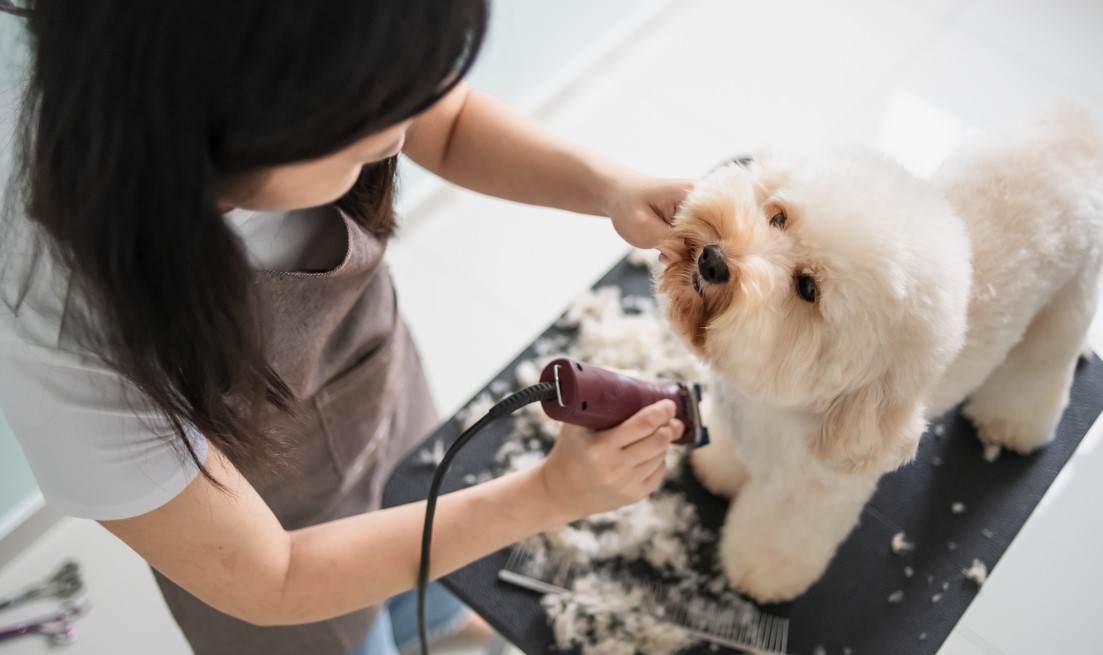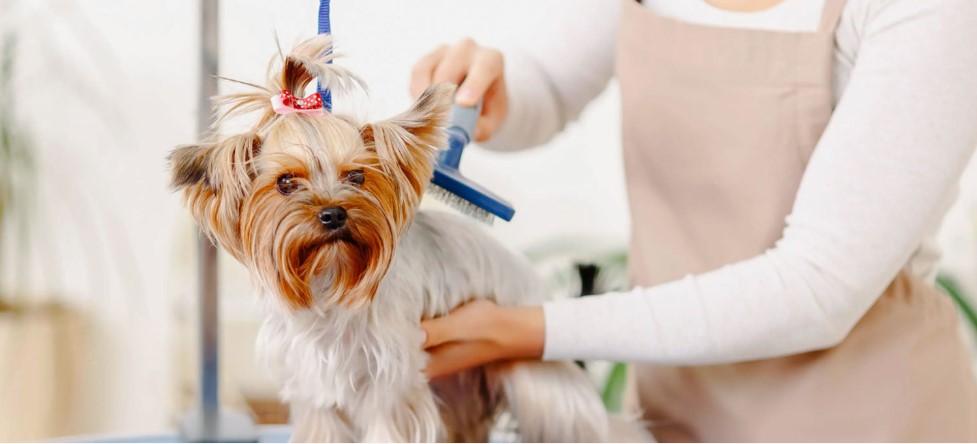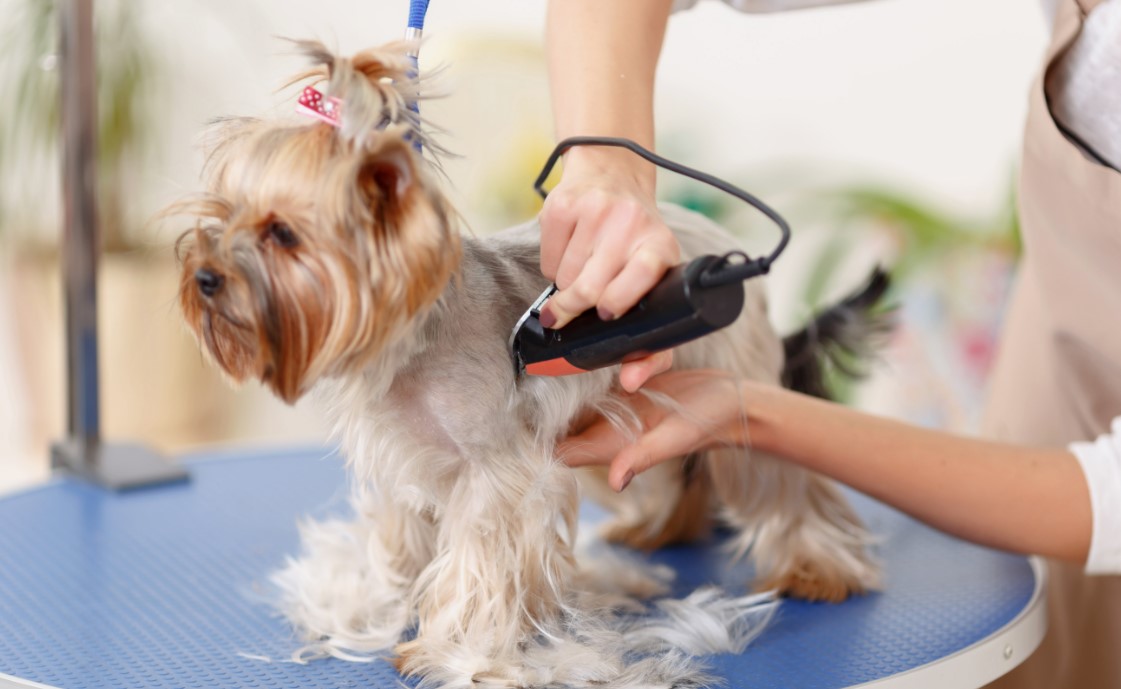Maintaining high hygiene standards in pet salons is crucial for ensuring the safety, health, and well-being of pets. For pet owners in Dubai and the UAE, understanding what constitutes proper hygiene practices in these establishments is essential for making informed decisions about where to take their pets for grooming. This article delves into the key hygiene standards that every pet salon should adhere to, providing valuable insights for pet owners to consider when selecting a salon.
Importance of Hygiene in Pet Salons
Hygiene is a fundamental aspect of pet grooming that goes beyond keeping pets clean. Proper hygiene practices help prevent the spread of diseases, infections, and parasites, ensuring a safe environment for all pets. In a bustling city like Dubai, where pet salons serve a diverse range of animals, maintaining high hygiene standards is not only a matter of professionalism but also a regulatory requirement. Pet salons are expected to adhere to guidelines set by local authorities, such as the Dubai Municipality, which outline specific measures to protect pet health during grooming sessions.

Cleanliness of Equipment and Tools
One of the primary aspects of hygiene in pet salons is the cleanliness of grooming tools and equipment. Brushes, clippers, scissors, and combs must be thoroughly cleaned and disinfected after each use to prevent cross-contamination between pets. Tools that are not properly sanitized can harbor bacteria, fungi, and parasites, posing a significant risk to the health of pets. Many salons employ strict protocols for sterilizing equipment using industry-approved disinfectants and sterilization techniques, such as UV light or autoclaves, to ensure all grooming tools are safe for use on each pet.
Proper Facility Maintenance
The overall cleanliness of the salon environment plays a crucial role in maintaining hygiene standards. Floors, grooming tables, bathtubs, and waiting areas must be cleaned regularly with appropriate cleaning agents to reduce the risk of infection. Pet hair, dirt, and debris should be promptly removed to maintain a clean and welcoming atmosphere. Ventilation is also important, as it helps reduce odors and the spread of airborne contaminants. Pet salons in Dubai are expected to meet the sanitation requirements set by local regulations, which include regular cleaning schedules and the use of non-toxic, pet-safe cleaning products.
Handling and Disposal of Waste
Effective waste management is another critical component of hygiene in pet salons. Salons generate various types of waste, including pet hair, nail clippings, and used cleaning materials, all of which must be disposed of properly to prevent contamination. Pet salons are required to follow waste disposal guidelines to ensure that waste is collected, stored, and disposed of in a sanitary manner. This includes using sealed containers for waste, regular disposal of garbage, and adherence to local waste management protocols. Proper waste handling minimizes the risk of odors, pests, and the spread of diseases, contributing to a healthier salon environment.
Infection Control and Prevention
Infection control is a top priority in pet salons, as pets can be susceptible to various contagious conditions such as ringworm, fleas, and respiratory infections. Salons must have procedures in place to identify and manage pets with visible signs of illness or infection. This may include isolating the affected pet, postponing grooming services until the pet is healthy, or recommending veterinary care. Additionally, regular training for staff on infection prevention practices is essential to ensure that all employees are aware of the protocols and can effectively implement them.

Staff Hygiene and Training
The hygiene of the salon staff is equally important in maintaining overall cleanliness. Groomers and other salon employees must adhere to personal hygiene practices, such as frequent handwashing and the use of gloves when handling pets. Staff should also wear clean uniforms or aprons that are changed regularly to prevent the spread of contaminants. Training programs on hygiene protocols and infection control should be conducted regularly to keep staff informed of best practices. By maintaining high personal hygiene standards, salon staff can significantly reduce the risk of spreading germs and ensure a safe grooming environment for pets.
Sanitizing Grooming Spaces Between Appointments
Sanitizing grooming spaces between appointments is a key practice in pet salons to prevent cross-contamination. After each pet is groomed, grooming tables, tubs, and other surfaces should be thoroughly cleaned and disinfected. This process involves using pet-safe disinfectants that are effective against a broad spectrum of pathogens. In Dubai, where salons often serve multiple pets in quick succession, this step is critical to maintaining hygiene standards. By ensuring that each grooming space is clean and sanitized, pet salons can provide a safe environment for every pet that visits the facility.
Water Quality and Bathing Procedures
The quality of water used in pet salons is another important aspect of hygiene. Clean, fresh water should be used for bathing each pet, and bathtubs should be thoroughly cleaned between uses. Stagnant or reused water can become a breeding ground for bacteria and other pathogens, posing a risk to pets’ health. Pet salons should have protocols in place for water quality management, including regular cleaning of water supply systems and ensuring that water temperature is appropriate for pet comfort. Adhering to these procedures helps prevent infections and ensures a pleasant bathing experience for pets.
Managing Parasite Control Safely
Parasite control is a common service offered in pet salons, including treatments for fleas, ticks, and mites. It is important that these treatments are administered safely and effectively, using products that are approved and appropriate for each pet’s size, breed, and health condition. Salons should have protocols for applying parasite control treatments, including monitoring pets for adverse reactions. In Dubai, where the climate can contribute to an increased prevalence of parasites, regular grooming and parasite control are particularly important for maintaining pet health and hygiene.
Monitoring Air Quality and Ventilation
Air quality and ventilation are often overlooked but are essential components of a hygienic pet salon. Good ventilation helps control odors, reduces humidity, and limits the spread of airborne contaminants, such as pet dander and hair. Salons should be equipped with adequate ventilation systems, including exhaust fans or air purifiers, to maintain a fresh and clean environment. In Dubai’s hot climate, ensuring proper air circulation also helps keep pets comfortable during their grooming sessions. By prioritizing air quality, pet salons can create a more pleasant and hygienic space for both pets and their owners.
Importance of Customer Awareness and Education
Pet owners play a role in maintaining salon hygiene by being informed and proactive about their pet’s health. Bringing pets to the salon in good health, ensuring they are up-to-date on vaccinations, and alerting staff to any known health issues can help salons maintain a safe environment for all pets. Salons like Pets in the City often provide educational resources to pet owners, including tips on how to prepare pets for grooming and the importance of regular visits. By working together, salons and pet owners can ensure that hygiene standards are upheld, contributing to the overall safety and well-being of pets.
Compliance with Local Regulations
Compliance with local regulations is mandatory for pet salons in Dubai and the UAE. The Dubai Municipality outlines specific requirements for pet grooming establishments, including hygiene standards, staff qualifications, and facility maintenance. Pet salons must undergo regular inspections to ensure they meet these standards, and non-compliance can result in fines or closure. By adhering to these regulations, pet salons demonstrate their commitment to providing a safe and hygienic environment for pets. Pet owners are encouraged to choose salons that are compliant with local regulations, as this reflects the salon’s dedication to maintaining high standards of care.
Conclusion
Understanding the hygiene standards of pet salons is essential for pet owners who want to ensure the health and safety of their pets. From the cleanliness of grooming tools to the proper disposal of waste, each aspect of hygiene plays a vital role in creating a safe environment for pets. In Dubai, where pet ownership is on the rise, choosing a salon that adheres to stringent hygiene practices, such as “Pets in the City,” is crucial for providing the best care for pets. By being informed and vigilant, pet owners can make confident decisions about their pet’s grooming needs, contributing to their overall health and well-being. Regular visits to a hygienic pet salon not only keep pets looking their best but also support their long-term health, making grooming a valuable part of responsible pet ownership.

Football fan, shiba-inu lover, DJ, hand letterer and identity designer. Operating at the fulcrum of modernism and elegance to craft experiences that go beyond design. Let’s chat.
